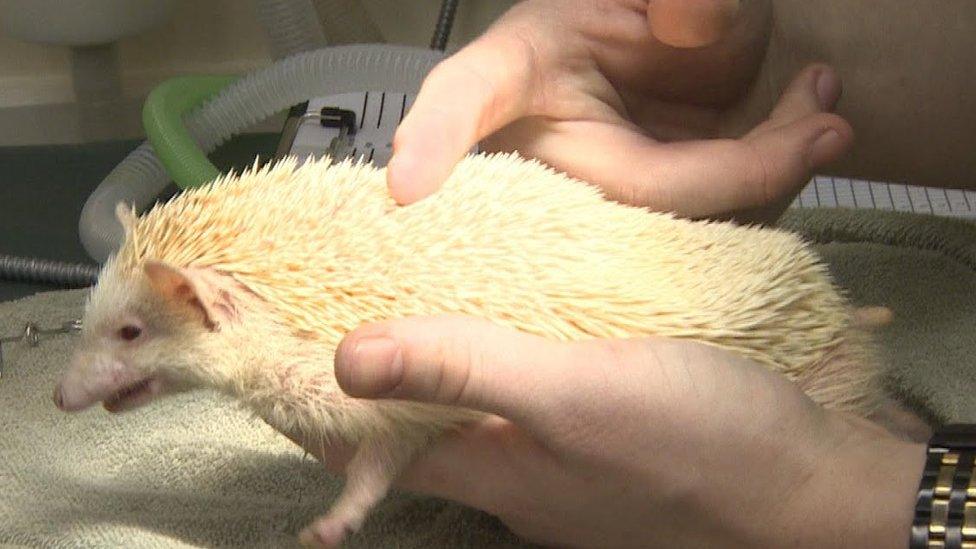Exotic animal parties 'to face new regulations'
- Published
- comments
Mobile zoo owner Scott Gavin uses snakes and a raccoon dog at parties
Mobile zoos that provide exotic animals for children's parties will require licences to operate in England, the government has said.
It comes as the RSPCA told the BBC's Victoria Derbyshire programme animals such as meerkats and raccoons were being handled and kept inappropriately.
Animals used currently range from snakes and tarantulas to - more controversially - skunks and monkeys.
Animal welfare group the Scottish SPCA said it was opposed to mobile zoos.
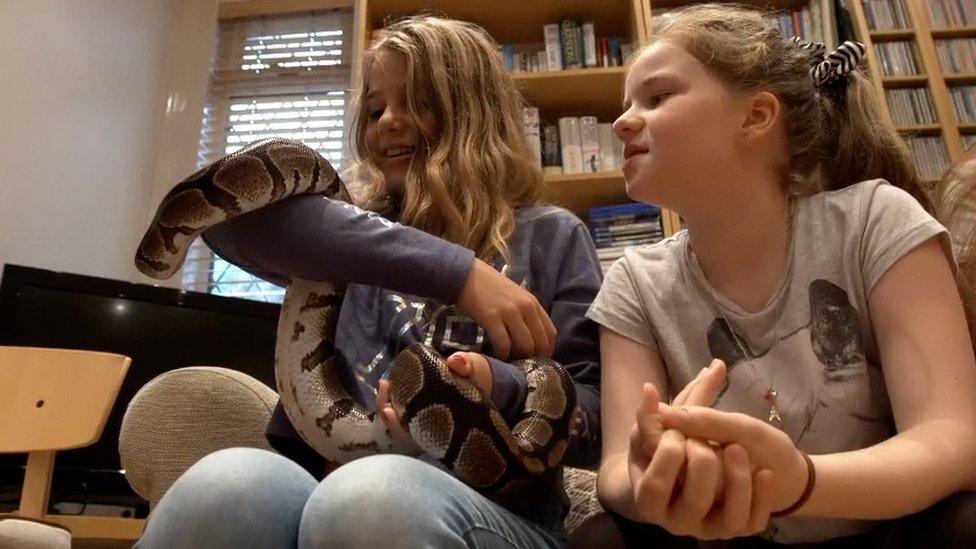
There are about 200 mobile zoos in the UK, estimates suggest
Estimates suggest there are about 200 mobile zoos in the UK. Some do hundreds of events a month.
Under the changes to the Animal Welfare Act 2006 - to be introduced "as soon as parliamentary time allows" in England - "anyone in the business of providing an animal for exhibit" would need a licence from their local authority, the Department for Food, Environment and Rural Affairs (Defra) said.
This includes mobile zoos.
They must also adhere to welfare standards developed with those working in the sector and animal welfare charities.
Defra said it would "liaise closely" with the Welsh government over the matter - which has just concluded a consultation on bringing in new laws.
The Scottish government has previously announced it plans to develop a new licence to protect the welfare of animals used in such shows.
Spread of disease
Ros Clubb, from the RSPCA, said the charity was particularly worried about the use of meerkats, raccoons and raccoon dogs - also known as tanukis - at children's parties.
"They have specific needs, for example being kept in a group. They're wild animals, they're not used to being handled," she said.
She was also concerned about "animals being stacked up in inappropriate boxes and enclosures, and taken to places for display and for handing round again and again potentially in the same day".
The charity warned that some animals may also pose a risk to children from bites and scratches, or even the spread of disease. Reptiles and amphibians can spread salmonella to humans.
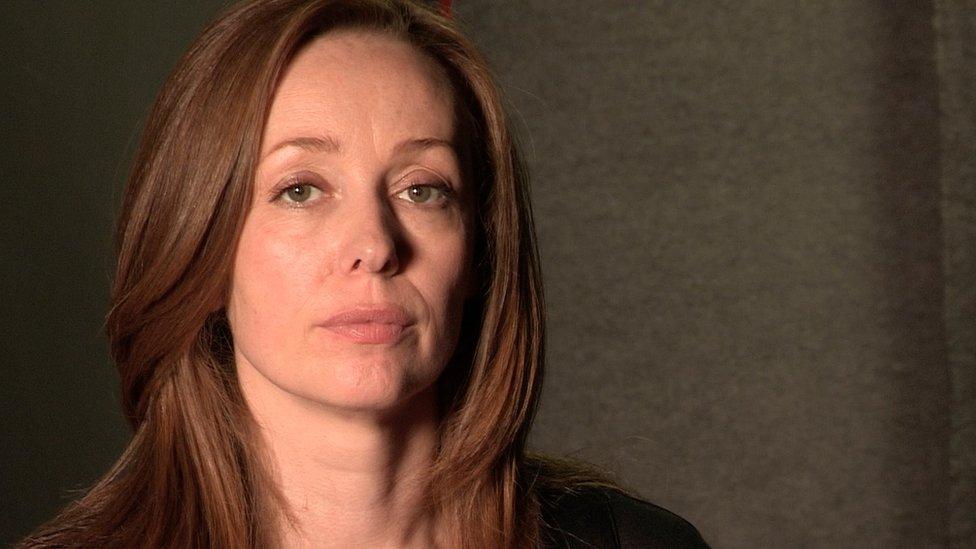
Dr Clubb says it is "extremely easy" for someone to start a mobile zoo business
Under the current system, local councils in England, Scotland and Wales do run a registration scheme for performing animals.
But the RSPCA said many did not require mobile zoos to sign up, because they did not consider animals in mobile petting zoos as "performing".
A good mobile zoo has a trusting relationship between an animal and its handler, one operator told the BBC
'Animal cruelty'
Most of the mobile zoo owners the Victoria Derbyshire programme has spoken to supported the notion of stronger regulation.
Joshua Jameson, from Wild Science - whose animals include hedgehogs, snakes and scorpions - said his company had never been inspected.
"I definitely think there should be more regulation in this industry," he said.
"People are using the wrong animals - meerkats, skunks, even small monkeys. It's tantamount to animal cruelty."
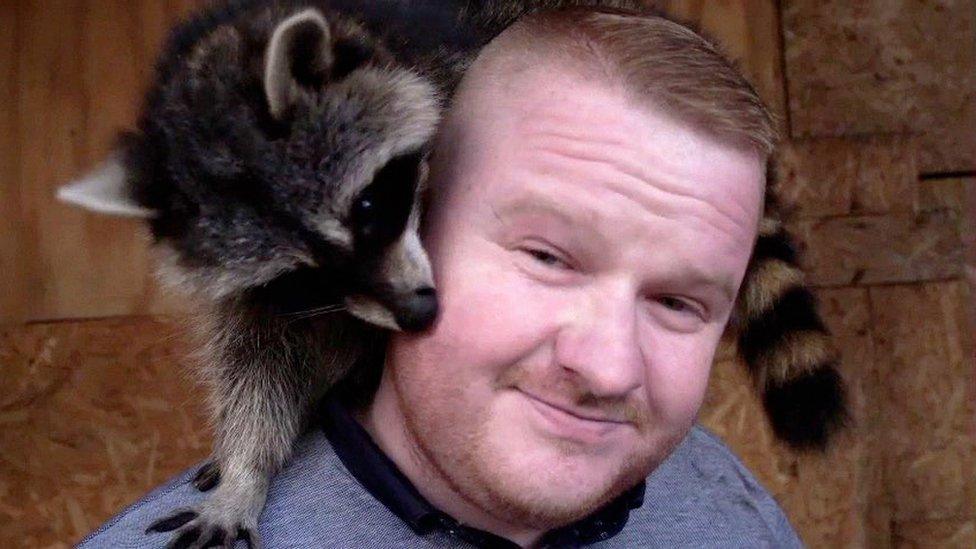
Scott Gavin with his raccoon
Scott Gavin, who runs Party Central Entertainments, has more than 120 animals - including a raccoon dog.
He defends his use of large exotic animals, seeing little difference to the keeping of domestic pets.
"It's OK to keep a rabbit in a hutch, but it's not OK to have a raccoon. You can have a hamster, but not a hedgehog," he said, questioning the logic. "It's just people being very picky."
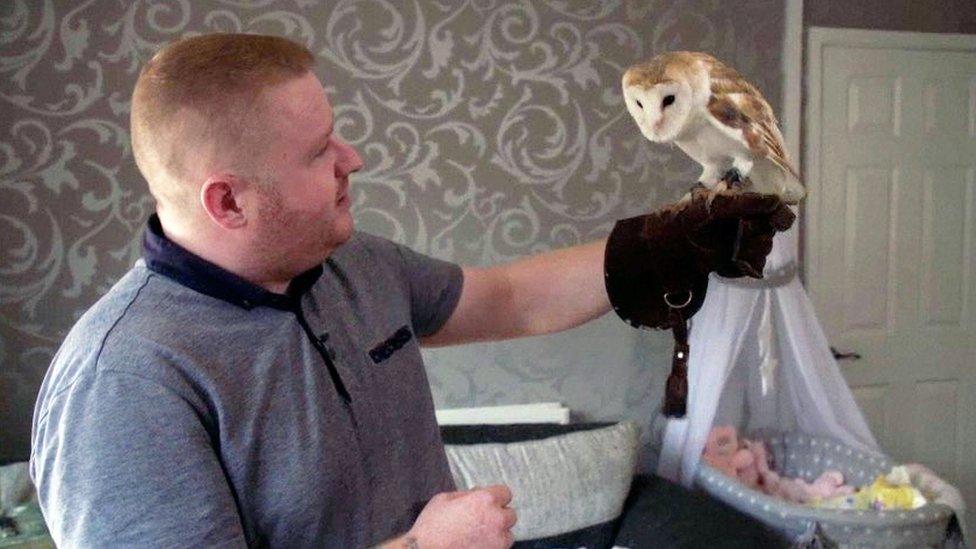
Mr Gavin has more than 120 animals
Mr Gavin - who also does school visits - believes his events help to educate children about the creatures.
He insisted that animal welfare was his number one priority.
"The environment has got to be set properly, no crowding, no noise," he said.
"If [the children] are causing stress for the animals, the animals go home."
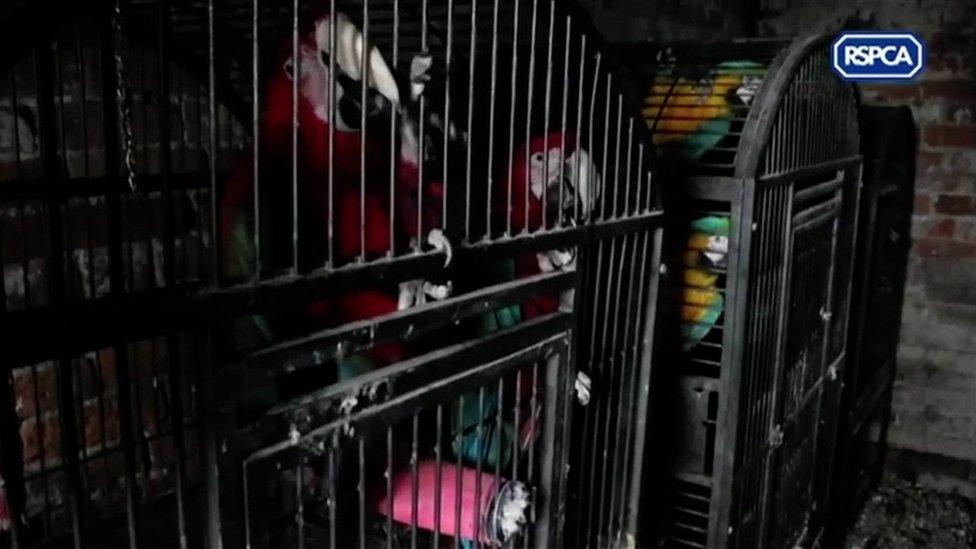
In 2013, the RSPCA rescued 70 exotic animals from a company running a mobile zoo
The RSPCA is urging parents to think carefully before booking any mobile zoo for their children's party.
In 2013, it rescued 70 exotic animals from a company that was keeping them in cramped, dirty conditions.
The owner of the company, Stephen Rowlands, pleaded guilty to 34 animal welfare offences.
He was given a suspended jail sentence, but was able to continue running his mobile zoo business.
Watch the Victoria Derbyshire programme on weekdays between 09:00 and 11:00 on BBC Two and the BBC News channel.
- Published8 July 2017
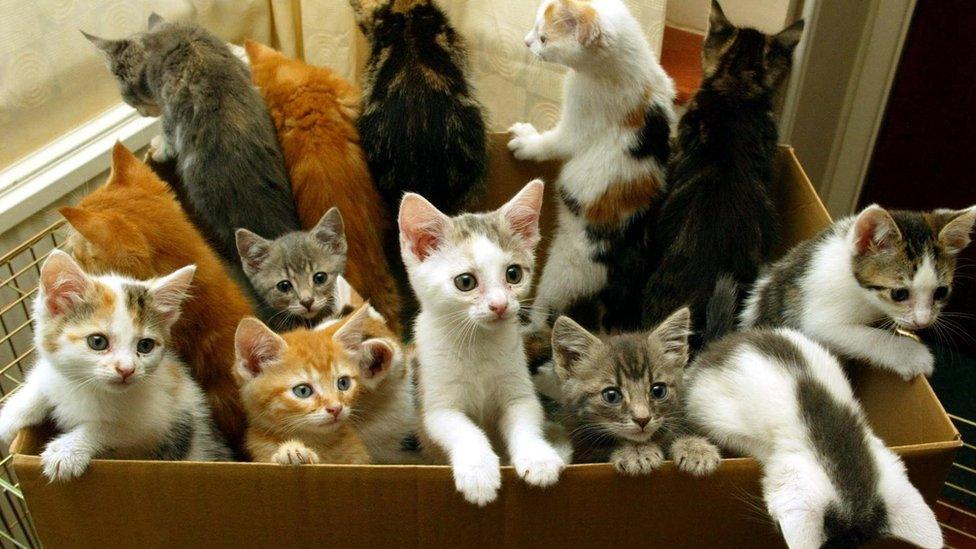
- Published11 April 2017
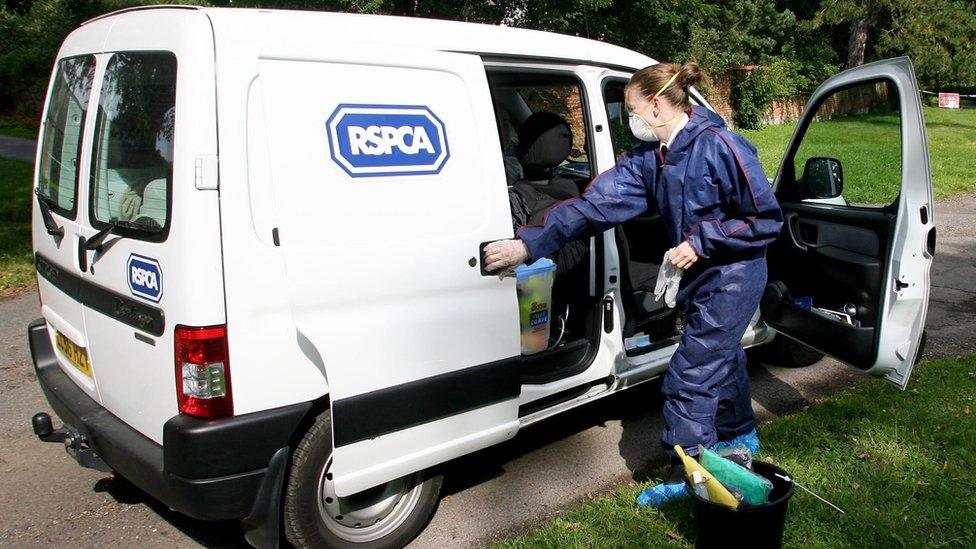
- Published30 August 2017
